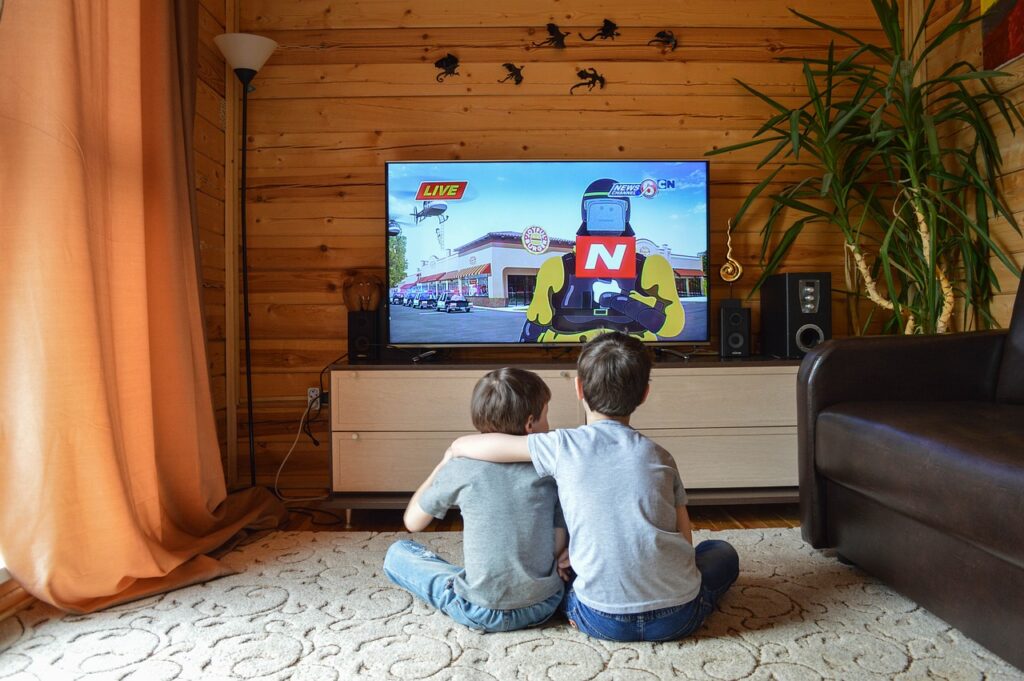Hello, concerned parents and caregivers,
Learn effective strategies to safeguard your kids from the harmful effects of excessive screen time Get expert guidance from a renowned Parenthood Guru Stay informed!
In today’s digital age, it’s no secret that screens have become an integral part of our children’s lives. From smartphones to tablets to television, screens offer endless entertainment and information at the touch of a button. However, while moderate screen time can have its benefits, excessive TV watching, coupled with a lack of outdoor play, can pose significant risks to our children’s mental health and well-being.
As a child specialist, I’ve witnessed firsthand the impact of excessive screen time on children’s development, behavior, and overall happiness. So, let’s delve into the harmful effects of too much TV and the importance of outdoor play for our little ones’ mental health.
1. Sedentary Lifestyle and Obesity: One of the most obvious consequences of excessive TV watching is a sedentary lifestyle, which contributes to a host of health problems, including obesity. When children spend hours glued to the screen, they’re missing out on opportunities for physical activity and exercise. Outdoor play, on the other hand, promotes movement, coordination, and cardiovascular health, helping to prevent obesity and its associated risks.

2. Impaired Cognitive Development: While some TV programs claim to be educational, excessive screen time can actually hinder cognitive development in children. Prolonged exposure to fast-paced visual stimuli can impair attention span, concentration, and problem-solving skills. Outdoor play, on the contrary, stimulates creativity, imagination, and critical thinking, as children explore their surroundings, interact with nature, and engage in imaginative play.
3. Social Isolation and Poor Social Skills: Watching TV alone for extended periods can lead to social isolation and poor social skills development. Children need face-to-face interaction and real-life experiences to develop empathy, communication skills, and emotional intelligence. Outdoor play provides opportunities for socialization, cooperation, and teamwork, as children interact with peers, negotiate conflicts, and learn to navigate social dynamics.

4. Sleep Disturbances and Disrupted Circadian Rhythms: Excessive screen time, especially before bedtime, can disrupt children’s sleep patterns and interfere with the body’s natural circadian rhythms. The blue light emitted by screens suppresses the production of melatonin, making it harder for children to fall asleep and achieve restful sleep. Outdoor play, on the other hand, exposes children to natural light and fresh air, helping to regulate their sleep-wake cycle and promote better sleep hygiene.
5. Negative Effects on Mental Health: Studies have linked excessive screen time to an increased risk of anxiety, depression, and other mental health issues in children. The constant exposure to screens, with their barrage of advertisements, unrealistic portrayals, and sensationalized news, can negatively impact children’s self-esteem, body image, and sense of well-being. Outdoor play, with its calming effects and opportunities for stress relief, promotes mental clarity, emotional resilience, and overall psychological well-being.
In conclusion, while technology can enrich our children’s lives in many ways, it’s essential to strike a balance between screen time and outdoor play for their mental health and development. So, let’s encourage our kids to unplug from the screens, step outside, and engage in the wonders of the real world. After all, there’s no app or TV show that can replace the joy of running, jumping, and exploring the great outdoors.
Together, let’s prioritize our children’s mental health and well-being, one outdoor adventure at a time.
Warmest regards,
Puran Kaur
Teacher & Fun Enthusiast


Very nice